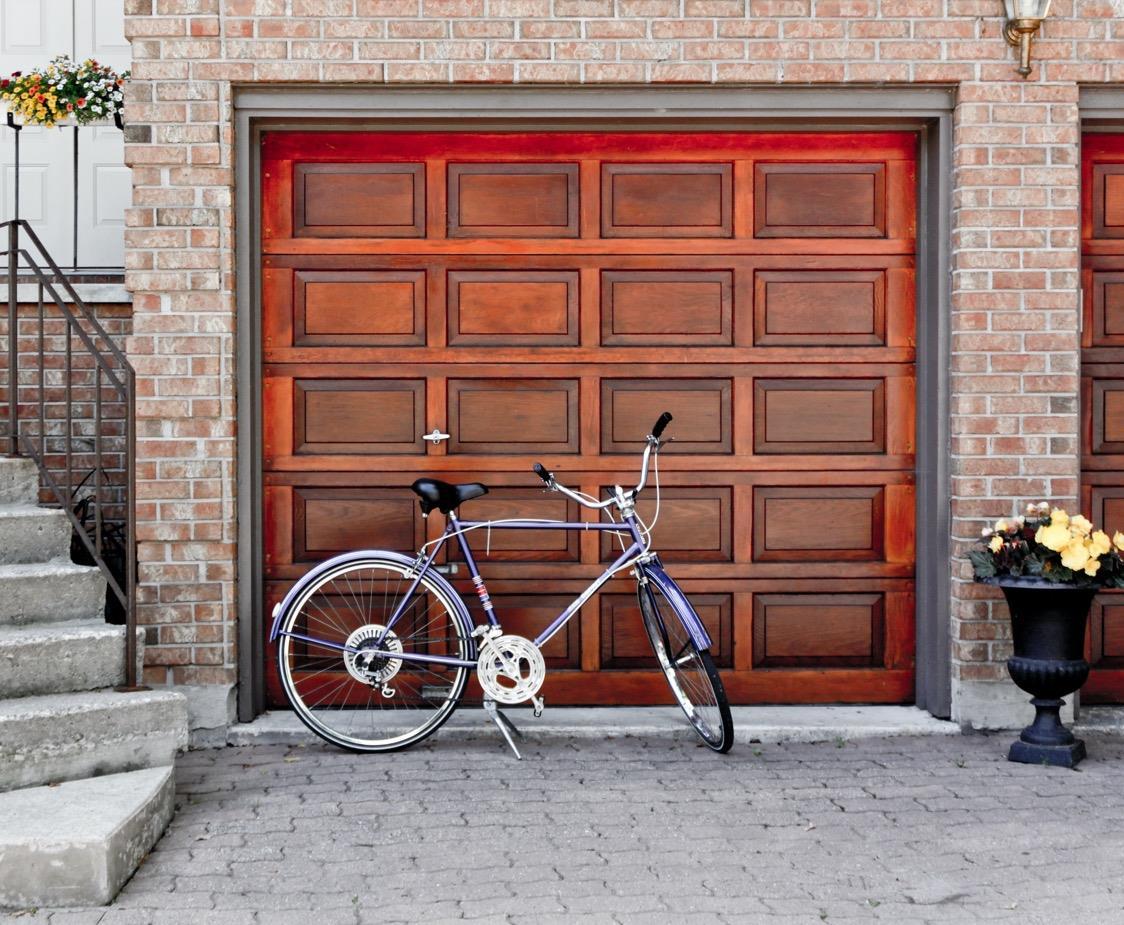Film Set

It may not be the first thought that comes to mind, but you can make money by renting your home as a film set.
Location scouts are looking for all kinds of properties and could pay you up to £2,500 a day to use your home.
Here’s a quick guide to renting out your home as a film set:
What
does renting your home as a film set involve?
Sometimes film and TV productions want to use a real location instead of building a set. This might be because it is cheaper or they may simply be looking for a location that is more authentic. No matter where you live, whether it be a stately home or a grotty little bedsit (no offence if you live in one), there is always the potential for demand.
If your house is selected then you will have a film crew around your house for an agreed amount of time. It may just be for a day or it may be longer.
Renting your home for a photo shoot

There’s also the opportunity to have your house used in a photo shoot, which is less invasive and can earn you a few hundred pounds.
These types of photo shoots could take the form of anything from a fashion feature where your home/part of your home merely serves as a backdrop or even an interior design focus where your space is the main event.
While photo shoots do come standard with a lot of people and equipment, they typically only last a few hours and leave less of a trace than their moving picture counterparts. Not surprisingly, you get less money for photo shoots than for filming, but it’s still decent cash just for allowing others into your space.
Is it for me?
Having your house appear in a film or TV show might sound like the perfect glamorous money maker. You can get paid a good amount and if you hang around during filming you could meet some interesting people – maybe even snare Hugh Grant as a husband! (Ok, maybe not…)
However, if your home is going to be used as a film set you’re going to need a laid-back attitude. Having a film crew of 30 to 40 people lugging around their equipment can be very intrusive and could even lead to breakages!
Film crews should replace anything they damage, but if something is of sentimental value, rather remove it. Plus, you might discover something’s broken weeks after the film crew has left.
If the crew has to be at your home for any length of time, you may have to move out for a while. This is obviously a real nuisance and completely impractical if you have a family.
Also, consider whether you have enough parking nearby to cater for all the crew and whether your neighbours will be happy with the arrangement. Night shoots, for example, could be noisy at night, which might not impress the rest of the street.
Oh, and don’t forget that you will need to pay tax on any income you get from renting your home out this way. It’s like any other normal earner.
Insurance
Quite rightly, you are probably wondering if this will affect your insurance. Here are a few things to keep in mind:
For a start, you should iInsist that the film company leaves your property as they found it. In fact, this is a standard stipulation in location contracts anyway but do just check before you sign. Some film-directors will paint entire rooms in your home a different colour and then back again in a day so be prepared for major changes, albeit temporary!

Check that your insurers will cover you for any incidental damage to your property. The film company will have public liability insurance as standard so they will be able to pay for breakages but it’s good for your insurers to know what’s going on before you have to claim.
How to get started
To get started it’s best to sign up to an agency such as:

Amazing Space
Lavish Locations
The Collective Light Locations
ShootFactory
1st Option Location Works
Salt
JJ Connect
You can register your property with these sites and they’ll help provide you work. To apply, you will need to provide photos to give a feel of your house.
You could also contact the BBC locations department or your local film commission directly to ask if they’d be interested in your home.
If you live in Scotland, you can get in contact with Location Scotland, a company that, among other things, scouts Scottish locations.
Also try:
Creative Scotland

Filming Scotland
Film Edinburgh
What Location Managers are looking for
Most filming is done in and around London, so the closer you are to the city, the more likely your property will be used.
The more extraordinary or individual your home is the better chance you stand of getting picked if you are further from the city.
Not all television programmes and films are made in London though, so don’t give up just because you’re not in London: for example, BBC’s Doctor Who is filmed largely in Wales.
All kinds of homes are sought for filming. Homes that have original period interiors might be very useful for a nostalgic series or a period film. You remember the grotty bedsit we were talking about earlier? (Sorry again!) Well that could be great for a gritty police drama.
The key to your property’s success is that it must be a good example of the kind of property it is representing.
How much can you make by renting your home as a film set?
TOP END
If you live in a fabulous stately home you could make a lot of money per day – up to £2,500 upwards for a film crew.
For an average home, the fee is usually around £1,000 a day, although it would be less for a small place and more for a large home.
The type of filming that is taking place will obviously govern the price. Filming for a Hollywood blockbuster is going to pay out more than a low budget film.
LOWER END
In London, for example, documentary makers would pay around £500-750 per day.
For photo shoots you could expect between £300-750 depending on your location and the size or quality of your home.
DOWNSIDES
Don’t forget the potential costs.
Although any damages should be covered, it is possible that you won’t discover something is broken until some time after the filming.
Even more costly, if the filming lasts more than a day then you might have to factor in the cost of alternative accommodation.
You may not want to rent out your whole house, which is a big ask after all, but there are still many, many ways you can provide space for money, so let’s take it ...

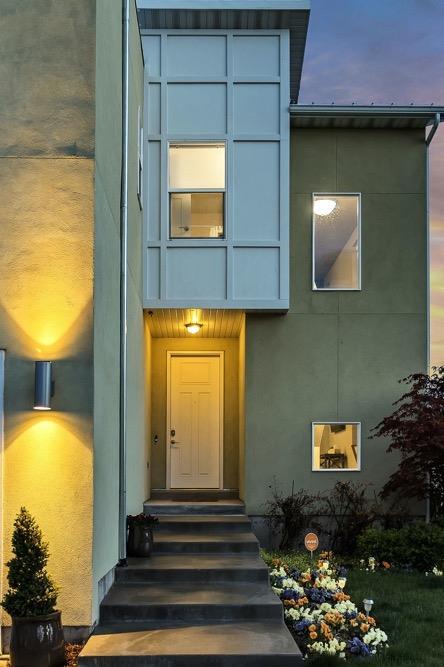
Room by Room
Spare Room
Renting out a spare bedroom can make you up to £7,500 a year tax-free. According to the government’s Rent a Room

Scheme you can let out as much of your home as you want.
Depending on your space and preferences, you’ll need to decide what kind of housemate you’re after. Could you manage a permanent co-resident who freely uses common areas like the living room and kitchen? Or would you prefer short-term visitors who simply need a pillow to lay their heads on at the end of the day?
Either way, you’ll be earning a passive income and can make money sitting on your butt doing nothing at the end of a long day. You can rest easy knowing you have money coming in without doing anything.
Advertising your Room
Sites like:
Gumtree , SpareRoom , EasyRoommate cover the whole of the UK. They’re the perfect platforms for advertising your room for a lodger. Airbnb currently dominates the global market for vacation rentals. It’s a good place to list your spare room for occasional holidaymakers.
Living Room
Make money sitting down and watching TV! We know what you’re thinking – can you REALLY make money watching television?

Well yes, you can!
OK, you might have to do a bit more than just watch, but there are plenty of ways to turn your relaxing pastime into a money-making opportunity.
Focus Groups
You can definitely make money watching TV by giving your views on TV programmes
Focus groups are groups of people who are brought together to discuss products and services.
There are focus groups for all sorts of things, including TV. Attendees are usually paid around £50 for an hour or two, plus refreshments.
You may want to run past every person holding a clipboard on the streets. However, those people are not always ‘chuggers’ (charity muggers), some of them are actually recruiting people for market research.
So if you see the bucket of coins shaking, run. If there’s no bucket, ask them what they’re doing as they may want to give you money for your opinions!
Also, make sure to check out our article on market research for more suggestions on how to take part.
Make money watching TV by giving your views
Your opinion is very important to media companies. In fact, you can influence the future of British television!
Media companies need to know what the general public is thinking and feeling when new TV shows come out, when old favourites switch time slots, or presenters are changed. They also need to know which news services are preferred.

To find out, they survey a cross-section of the public, whether in a personal focus group or via online surveys.
The media firms asking the questions appeal to market research companies to find a random sample of people for them.
Online Surveys
If you’re a regular at MoneyMagpie, you’ll know that we’re big fans of online surveys. They’re a great way of making some extra cash.
You can earn anywhere from 50p to several pounds doing surveys online. Sometimes, you’ll be put into prize draws with BIG payouts. Or, you’ll be collecting points to convert into cash or coupons.
There will be many online surveys to gather your opinion on the latest television programmes, so it’s well worth signing up so that you can make money watching TV.
There are many great online surveys out there, but some we particularly recommend include:
o Nielsen Online Panel – you can win up to £30,000 worth of prizes
o InboxPounds -Pays cash and gives you £1 just for signing up
o RewardsTV – Get rewarded for taking part in quiz’s about television and films
Review television programmes
These days anybody can be a critic.
Word of mouth can make or break a new film or TV series, so why don’t you get in there and take a slice of the pie and get paid for your time?
For example, whatculture.com allows you to write about a range of entertainment, including film and TV. They pay critics, as long as people are reading the content.
They currently give you 40p for every 1,000 people who read it. While this might not seem like a lot, they’re a big site, with a lot of traffic, so a really popular article could earn you a few hundred pounds.
Alternatively you could write a blog about your favourite (or least favourite) TV shows. If you start getting some traffic, you can put adverts on your blog and begin making money.

Attic
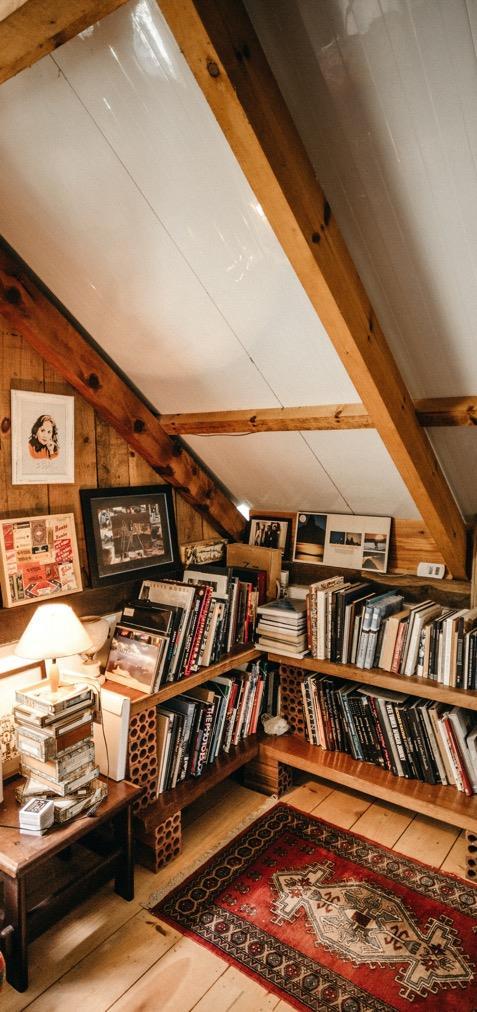
Do you have items lying around that you think might be worth something? You’re probably right, and they may be worth a lot more than you think.
Children’s toys like Nintendo consoles or Star Wars figures could be worth hundreds of pounds, and costume jewellery is always popular, especially designs from the 1930s, which can also be worth hundreds. Objects and furniture from the 1980s are also set to rise in popularity and value as we get further away from that iconic decade.
Kitchen
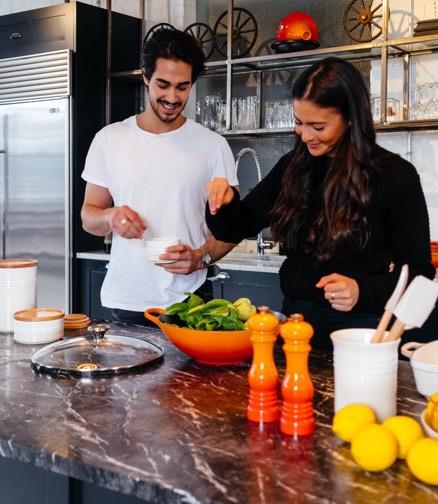
In the kitchen you could make money hosting dinner parties, pop-ups, special event, cooking classes and much more with www.eatwith.com Hosts need to be able to cook as you will be charging for what you produce but you can charge anything from £20£60 pp. You will need to budget for the cost of buying and preparing the food, so you couldn’t make a living from this, but if you love to cook and have the space, it’s great way to meet new people and to earn a bit of money while you do.

Supper Club
Basically, a supper club – also known as an underground- or secret restaurant – is an eatery that you set up in yozur home. You cook for as many guests as arrive and, traditionally, they leave you a ‘suggested donation’ to cover your costs and – maybe –make a bit of money. It’s a bit like Come Dine with Me on a larger scale, but without the film crew or sarcastic voiceover.
If you haven’t come across them before, there’s a clue in the name – they’re ‘secret’ and ‘underground’.
This is partly because supper clubs started off as a cheap way to dine out in the recession, but also because there are a number of rules and technicalities around commercial food preparation in a domestic kitchen, which supper clubs help you bypass.

Up until now, the supper club business has been, well, secretive. And in many cases it still remains this way.
Individual front room restaurateurs typically publicise their undertakings through personal websites, social media sites -like Facebook and Twitter – and, of course, word-of-mouth. They normally take bookings over over email and payment (or ‘donations’) can either be made on the night or through websites using a secure system.
If you like organising your own business from start to finish, this is still a perfectly good method of setting up a supper club.
Food Sharing Websites
However, if you’re feeling a little unsure about all the admin related to dedicated websites, social media presences and payment systems, you may want to test the waters by using a ‘food sharing’ site to start off with:
Here are a few popular options:
EatWith – a website offering users an easy way to access the underground food scene and connect with creative, open-minded and interesting people. Similarly, VizEat is also geared specifically toward travellers, the site helps foodies share a meal or experience a cooking class with a local host.

BonAppetour – a community marketplace that connects travellers with local home chefs for a unique home-dining experience, anywhere around the world.
Feastly – a home for unique dining events with chefs who possess exceptional culinary talents –whether they’re a great home cook or Michelin starred. The site has not launched in the UK yet, but it’s worth keeping an eye on for the future.
Making Cakes
Make money by selling cakes, jams and sweets at local car boot sales, markets and even shops. If everyone loves your homemade sweet treats it’s likely that you could make money from them!
The beautiful thing about earning by baking is that it’s straightforward and flexible. It isn’t something that you necessarily have to do regularly – if you’re a little short of cash one week, it’s easy enough to hunt down your next local car boot sale and get baking. All you’ll really need is to have a good few recipes under your belt and a reasonable idea of what people would buy.
You don’t have to be qualified for this, but there are hundreds of baking/cake decorating courses you can go on which are likely to benefit the quality of your products. You can find courses at LearnDirect. The Food Standards Agency has also got some useful information on starting up a food business if you decide that baking is the business for you.
Here’s our foolproof six-step guide to help you make money selling cakes, jams and sweets at local car boot sales, markets and even shops. If everyone loves your homemade sweet treats it’s likely that you could:

Make Cash From Selling Cakes
The beautiful thing about earning by baking is that it’s straightforward and flexible. It isn’t something that you necessarily have to do regularly – if you’re a little short of cash one week, it’s easy enough to hunt down your next local car boot sale and get baking. All you’ll really need is to have a good few recipes under your belt and a reasonable idea of what people would buy.
You don’t have to be qualified for this, but there are hundreds of baking/cake decorating courses you can go on which are likely to benefit the quality of your products. You can find courses at LearnDirect. The Food Standards Agency has also got some useful information on starting up a food business if you decide that baking is the business for you.
Here’s our foolproof six-step guide to help you make money selling cakes, jams and sweets:

Step 1: Research
Take a trip to your local car boot sale or farmers’ market and look for which food stalls are the busiest. If it seems like jam is the ‘in-thing’ and there aren’t that many stalls that sell it, you’ve found your product.
If you’re at a car boot and there aren’t any stalls that make money selling cakes or other food, then it’s a good idea to take a look at the people that are there. Are they the sort who would prefer to buy upmarket, fancy, homemade produce or a couple of 10p fairy cakes to nibble on while they have a browse for basement bargains? Make the kind of cakes and sweets you think you could sell easily. Ask your family and friends what they’d like. Try to ask a wide range of people and see if you come out with any unanimous decisions. Also, speak to any cake sellers you see at fairs and markets and ask them which cakes sell best.
It’s also important to make sure you keep on the right side of the law. Legislation says that all food businesses must register their kitchens with their local authority unless they operate on a “casual and limited” basis only.
If you’re simply selling cakes once in a blue moon at a car boot sale or market then you don’t need to worry. However, if you are planning on doing this regularly, contact your local council and ask them what the rules are. If you do have to register your kitchen, it’s totally free to do so.
Be aware that if you want to make money selling cakes or other food produce regularly, the FSA has a range of free information on its web site to ensure you can do this safely and stay on the right side of the law. There‘s plenty of good hygiene advice too on the NHS Choices web site.

Step 2: do your Costings
If you want to make money selling cakes and other produce, you need to do some basic costings.


It doesn’t have to be complicated. You’ll need to take into consideration:
o How much ingredients cost
o Cost of the sale location fee (car boot sale/farmers market fee) if there is one
o Cost of travel to the location
o Cost of the food packaging (keep it simple to start with – clingfilm will do in some places)
o Initial cost of food hygiene training (if you’re planning on regular sales)
o Cost of labels/general stationery/invoicing pads
o Extra cost of gas or electricity for your oven
Once you’ve worked out how much all of this is likely to cost you, you should be able to work out how much you’ll need to sell your cakes, sweets and jams for to break even and then make a profit. While you do your research, you should be taking note of other stallholders who make money selling cakes and foods, to get a rough idea of how much you can reasonably expect to charge.
If you have to price your products extortionately just to make a profit, see if there’s anywhere you can cut back on costs. Shop around for cheaper ingredients or look for different locations that aren’t as pricey.
Step 3: Experiment with recipes
Once you’ve got a good idea of the kind of people you’re going to make money selling cakes to, it’s time to get your product sorted. You’ll need to come up with a range of different products to make this work.
If you want to sell jams, then make taster pots of all different flavours and try out different variations of ingredients. For you to make money selling cakes, you need to try out different methods, ingredients, flavours, and fillings. With sweets test out different recipes. You could try focusing on one area, like chocolate, fudge, or maybe even health food!
Get your friends and family to try all your samples out and find out which are the most popular choices. They’ll likely be more than willing to help! It’s worth knowing that at farmers’ markets, you’re not likely to make money selling cakes unless you use local, organic ingredients. People who go to these events look for traditional homemade foods and one of the pros of shopping for food at a farmers’ market is that you’re able to ask the stallholder precisely where the food is from and how it was made.
Stallholders at farmers’ markets should be prepared to give honest, credible answers to customers – so factor these more expensive ingredients into your budget. Remember that people are usually willing to pay for high quality.
Step 4: Get the right location
Before you decide to make a real go of this, it’s advisable to give it a few test runs somewhere that isn’t going to cost you the earth. Try out a stall at a car boot sale first, because it will only cost you between £5 and £15 to set up there. You can find your nearest car boot sale on Carbootjunction.
Once you’re more established, you might consider going a little more upmarket, although if you have cracked the car boot market you could also simply increase the number of cakes you take with you and let your business grow that way.


There are a number of other outlets that will let you make money selling cakes or other goods, such as the Women’s Institute, which runs country markets around the UK. It costs just 5p to join, and they’ll take about 10% commission on sales to cover the costs of the market.
To join, all you need is to pop down to your local market and have a word with the controller. You can find the contact details for your local market on the website or you can call their head office on 01246 261508 for more information.
To set up a stall at a farmers’ market and make money selling cakes, you need to find one local to you. You can do this by searching the Local Foods website for your nearest market. The website doesn’t deal directly with the people who run the markets so you can contact them via the details they provide on the site.
Step 5: Get the presentation right
Presentation is important, particularly if you sell at an upmarket venue. Consider your customers: are they going to want something ‘cheap and cheerful’, or posh-looking homemade produce? Funnily enough, some of the more expensive jams and cakes have ‘the rustic look’: you could find yourself charging a lot for produce which looks especially homely!
Packaging can affect your sales in a big way. Ribbon is cheap if you buy in bulk from a haberdashery store, and can neaten up any edges around your cakes. If you want to make money selling cakes and jams, it’s worth getting some fancy labels printed, or spending some time decorating your own. You could experiment with themed packaging around holidays like Easter and Christmas, and for days like Valentine’s Day and Hallowe’en.
Whatever you use to package your products, it’s important to remember that you’re dealing with food. This means that you are limited to certain types of packaging depending on what food you’re selling. It’s mainly the use of adhesives which is restricted but again – you’ll need to contact your local council for more information.
Step 6: make money selling cakes a serious business
A simple way to get some repeat business is to get some business cards printed off.
If you’re making cakes, you could then advertise the fact that you bake to order for parties and events (if your kitchen can take the strain!)
Pop into local cafés and coffee shops (not the chain outlets), hand them your card and make your services known – maybe even provide them with a few samples.
Bedroom
You can make money in so many different ways these days, and yes, you heard us right – that includes empty boxes. With the rise in popularity of influencers and bloggers, we’re also seeing an increasing demand to sell old boxes for tech and designer goods online. This is our simple guide on how you can sell the empty boxes you have lying around at home and earn some cash!

Sell Designer Bags and Boxes
High fashion designer labels like Michael Kors, Gucci, and Prada, and even high street ones like Pandora and Glossier, all give away free branded boxes and bags when you make a purchase with them. Instead of throwing these into the recycling bin, list them online as there are plenty of people out there who are more than happy to pay to take them off your hands.


In this age of high designer awareness, designer anything is of value – even the box and bag. Influencer culture has played a big part in this – huge numbers of people are looking to influence and sell online, and there’s a lot of competition. Because of this, aspiring influencers can be looking to demonstrate on social media how they’re living a luxury lifestyle, when in reality this is not always the case. However, it does mean that any boxes, bags, and packaging you have from lying around can earn you a bit of cash.
How Much Can I earn?
Unfortunately, it’s not a guaranteed market out there so it does vary. But, designer bags will often sell for somewhere between £15 and £20, although designer boxes will often go for closer to £40! Even Glossier pouches, which come free with every purchase, can be sold for a few pounds.
Sell Empty Tech Boxes

Nowadays when you buy a fancy toy it’s not just the product that matters. The packaging has become just as important, and part of the whole in itself. But this trend actually means there are some great ways for you to make cash out of your old tech boxes. A lot of people will either buy gifts secondhand and want to be able to present the gift nicely in the appropriate box. Or, people may be reselling something and in this case most products will have more value if they come in the original box. So if the seller doesn’t have their original box – they can take to the internet and purchase another.
How much you can make from an empty tech box obviously depends on how much demand there is for it. The more recent the model – the more the box will likely sell for. But as a ballpark figure, an iPhone box for a model released in the past few years, will usually sell for around a tenner.
Where Can I Sell?
There are loads of places you can sell online – just always make sure you check any fees in advance so you don’t have any nasty surprises down the line.
The MoneyMagpie Marketplace is an easy place to get set up and start selling online. Whatever you may have, as long as it’s legal to sell it in the UK, you can sell it here.
eBay
A popular site for reselling goods. For each item you want to list you’ll need to upload photos, add descriptions, and decide on shipping options. You can list up to 20 items a month for free, but afterwards, it costs 35p for each listing, and once you make a sale, eBay takes a 10% cut of the final selling price.
Facebook Groups
In recent years lots more people are using Facebook for buying and selling. There’s a lot of groups set up for specific areas as well, making it easier to buy and sell within your local community. Which also means you don’t have to worry about delivery costs either! There are no fees or charges for selling on Facebook, but there’s also no formal seller protection like you have with other selling sites.
Facebook Marketplace
Allows sellers to list items with photos and descriptions, tagged to a certain location for free. With Facebook groups and marketplace, the network isn’t involved in payment or delivery of items at all. It’s down to the buyer and seller to make these arrangements independently between them.
Preloved
This is another online ad and community website where you can post selling ads. In most cases you’re allowed to post your ad for free, although depending on the item you’re selling – sometimes you will be charged.

Other Surprising Things You Can Sell Online
There is virtually no limitation to what you can sell and make money from online. Here are a few other ideas for you to sell instead of throwing out!
Plain old cardboard boxes

You can make money out of any cardboard box you own, no matter where it’s from, with Sadlers. Simply send them the details of what you have and they’ll get back to you with an offer. If you decide to accept it, they’ll organise a collection and will pay you the same day they receive your stock.
Empty Perfume Bottles
Although this won’t make you rich, the average empty perfume bottle will sell between £5 and £8, so it’s a fair bit of income if you have a few empty bottles lying around – better than them ending up in the bin anyway. Plus, extravagant bottles can go for even more so it’s worth keeping any that look a bit unusual.
Jam Jars
Often you’ll need a few to sell as a bundle as they don’t really sell as single items. It can take a while to build up a collection so bear in mind that you’ll need somewhere to store them before you can sell. But they are another good way to earn money from stuff that would have otherwise ended up in the bin.
Old Tech
MusicMagpie – no affiliation with us! – is an easy place to sell your old tech online. Tell them what you have, and you’ll get an instant quote from them. You can send it off for free, and you’ll get paid the same day they receive your stuff.
Bathroom
You can make money selling old toilet rolls. Nope, we’re not even joking about this! In fact, there are truly loads of people out there just dying to get their hands on your old toilet rolls.

Nope, we’re not even joking about this! In fact, there are truly loads of people out there just dying to get their hands on your old toilet rolls.
We did a little investigation into this rising money-making trend and gathered some important information to help you make an extra buck or two.
• Why old toilet rolls?
• Where to sell?
• How much can you make?
• Tips for selling your old toilet rolls
Why old toilet rolls?
While most of us might toss the little brown tube at the end of the toilet roll into the recycling bin without a second thought, a lot of people actually treasure them for the infinite DIY possibilities they hold.
Here are just a few of their most popular uses:
o Home-made Christmas cracker inner tubes

o The basis for napkin holders
o Seed-coated bird feeders
o Or, if you pop some soil and a seed or two inside, they make for great propagating tubes
The thing is, most people would need more toilet rolls than they can produce to see a project through, and therefore welcome the opportunity to invest in a few extra wherever they can.

eBay
On good old eBay, a search for ‘toilet roll tube’ delivers no less than 179 results.
Most of the listings come as bulk packs of between 10 and 150 rolls each and generally go for between £2 and £19, including postage.
Gumtree
You could also list your toilet rolls on Gumtree simultaneously to reach a wider audience. While eBay is hugely popular among a younger demographic, Gumtree reaches 16 million monthly unique visitors, roughly a third of the UK‘s adult online population.
Plus, with only 6 results showing up in the ‘toilet roll tube’ search, the market isn’t nearly as saturated as on eBay.
Facebook groups
Apart from these e-commerce sites, you could even try selling your old toilet rolls on one of Facebook’s many local used goods groups or even on a community dedicated to arts and crafts.
This way, you might even make a connection with a regular buyer to whom you can sell toilet rolls every few months.
How much can you make?
Well, to put it quite plainly… not much at all. However, for the little effort that goes into gathering the rolls, storing them and sending them off, an average of £7 a pop (for 50 rolls) isn’t a bad bit of pocket money.
In fact, if you’ve been trying to save up for something small (maybe a weekend away or a specific item of clothing), this could be a great way to generate some income dedicated to that cause alone.
Tips for making money from your old toilet rolls

Before you go tearing through your current toilet roll with dollar signs in your eyes, you might want to consider a few of the following tips:
Instead of trying to get rid of rolls one by one, it makes a lot more sense to sell them in sets of between 20 and 150. How many you choose to sell in one go is completely up to you, but 50 seems like a good, round number to start off with.
Once you’ve gathered your first 50 rolls, we know you’ll want to rush to eBay to get them listed. However, remain patient for a little longer and gather about four times the amount you’ve decided to sell. This way, you can post four different listings and make a little more cash in one go.
Most people aren’t that attached to their toilet rolls, so you may as well ask for help with your moneymaking project. If you get friends, family members and neighbours to donate their used rolls to you, you’ll be able to sell on a much more regular basis. While you may not make enough to give them a cut, you might want show your appreciation in other small ways – chocolates, biscuits or a home-cooked dinner are always great tokens of thanks.
To keep your toilet rolls from being squished and losing their shape, you’re going to need to send them off in securing packaging. Instead of spending money on buying boxes for this purpose, you could always visit your local grocery store and ask for their old shipping boxes. They are normally happy to give these away to people who are moving house etc.
Look, if someone’s buying a limited edition Star Wars action figure on eBay, they’d probably be willing to shell out a few extra pounds for postage/shipping. Not so much with something as commonplace as toilet rolls. Consider offering free shipping – they’re going to be so light, it won’t cost you much at all – and get more people interested in buying.
Garden
No matter how small your garden may be, you can earn a sweet mint with some of our clever outdoor money-making ideas. From using the soil for growing saleable produce to renting your garden for private functions, there are loads of ways to earn pretty pounds from those lovely petals.
No matter how small your garden may be, you can earn a sweet mint this summer with some of our clever outdoor money-making ideas. From using the soil for growing saleable produce to renting your garden for private functions, there are loads of ways to earn pretty pounds from those lovely petals. Here are a few tops tips on how to make money from your garden.
Organic is big business these days. Celebrity chefs, supermarkets and health food stores tell us the benefits of organic produce for us and the environment all the time, and with a return to thrifty ways thanks to the recession there’s never been a better time to go out there and grow your own. You could even cut out the middleman and sell directly to individual customers.
Grow edible flowers
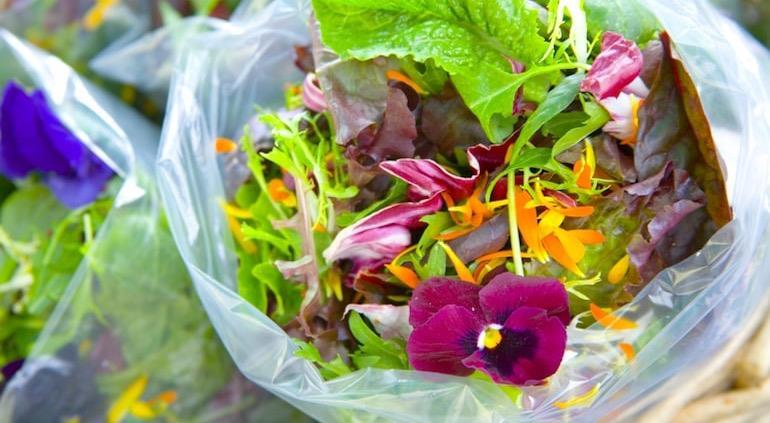
Yes, really. Gourmet and health food stores do stock edible flowers, and at restaurants plenty of chefs include flowers in recipes as well as to garnish dishes. They might not be tasty on their own but with a few other key ingredients you could have a winning combination. The key is to work out what’s edible and what’s saleable.
The dandelion, for example, is actually a great salad ingredient, and makes a great wine! Remember that certain flowers can only be used for decoration, such as daffodils, azaleas and rhododendrons. They’re not safe to eat – so if in doubt, always check. Roses, violets, pansies and daylilies are all popular and saleable edible plants you could grow. The good news is you don’t need a huge garden to grow them.
All you’ll need is:
o Some varieties of popular edible flowers
o Organic pesticides and fungicides
o A designated plot in your garden
Before you start planting, consult your local plant nursery to find the best way of using insect deterrents to protect your plants organically. A compost pile is ideal for providing naturally enriched soil to use. If you’re going to eat your produce, be aware that you can’t use normal chemical plant agents.

When it comes to harvesting your edible flowers make sure to do it whilst the temperature is cool: early in the day after the morning dew has evaporated is ideal. Remove all the pollen parts of the plant, and keep the long-stemmed flowers in water inside the fridge. Place short-stemmed flowers between moist paper towels or keep them loose inside a plastic bag – and that’s all it takes.
Your flowers will be good to eat fresh for about a week. Approaching local restaurants or food stores is a good way to sell your flowers, and you’ll need to put together some photos, pricing and growing information. In order to trade directly to households, consider creating a blog page, or place adverts on eBay, Gumtree or Craigslist.
Sell medicinal plants

A lot of the same edible plants can also be used and sold for medicinal purposes – you just need to add an extra step and dry your plants to increase their shelf life. Stick to perennials that don’t require annual planting or germination. Medicinal herbs and plants are great because they can flourish in the shade or harsh sun, and require little water or attention. You’d be surprised at what already grows in your garden that’s medicinal. The roots and flower-tops of the dandelion can be dried and sold as a tea or a body tincture. They’re meant to aid liver and gastrointestinal detoxification, work as a digestive and as a diuretic, and they also contain plenty of antioxidants.
A common weed with a stock of medicinal qualities is the plantain – it’s great for killing bacteria and reducing swelling on wounds and insect bites. Another perennial, lemon balm, belongs to the mint family and treats viral infections, shingles and cold sores. Use it as a tea to bolster the immune system in overcoming cold and flu symptoms – it’s also good for helping you get a good night’s rest.
The market for selling medicinal herbs is more likely to be a domestic one. Your knowledge of their use is just as important in selling the plants as the plants themselves, so it’s vital to do your research beforehand into all the plants and herbs you’re interested in growing for sale and distribution. People are more likely to buy from you – and continue to buy from you – if you’re confident and secure in the information you can provide.
Remember: Even though these plants are generally considered safe to use as a natural homeopathic medicine, you should always evaluate their risks and benefits to certain people and their illnesses, especially when used in conjunction with other prescribed medicines. If in doubt, go without until you’ve got more information and advice.
Propagate seedlings
Many don’t have the skills to nurture seeds into life and choose to skip this stage and buy already-established seedlings. You can profit from this by doing the hard work for them. You’ll need:
o Good-quality seed compost – normal soil won’t cut it as the physical structure won’t be up to scratch, and potting compost has too many nutrients, putting your seedlings at risk of fertiliser damage.
o Somewhere for the seeds to grow – think somewhere warm and humid with seed trays. This could be a greenhouse, a conservatory or even just a propagator, which is a seed tray with a lid like a fish tank.
Make sure you do your research to get the best results Fresh seeds are key and will ensure that you grow the best-quality seedlings possible. A watering can is a must, but take a look at your seedling packet’s instructions to see if they have any specific needs.

Start an organic market garden

This’ll require a lot more time, knowledge and money so it’s probably not for you if you’re not especially green fingered. Be aware that larger garden farms will cost more money to establish and maintain. For small-scale growers, we’ve got an article on growing your own fruit and veg here. Staple and seasonal vegetables are a good entry point.
Remember to stick to the basics first before you start attempting to grow more exotic foods. Selecting produce that’s in season and can easily be grown in your local conditions will be easier and require far fewer resources to grow. Don’t worry about growing ‘perfect’ looking produce –buyers will know it’s the taste that matters.
Advertise locally, with flyers and business cards that you may put up in other local shops and eateries. It’s a good idea to hold weekly or monthly markets. You could even join forces with the neighbours and see if they’re willing to grow some produce in their gardens. If they are you could have a regular street market, cashing in on all your varying produce.
Running a market can require a lot of time investment (as will gardening all the produce), so be mindful of how large a market you can actually handle and how much time and money you have to invest. It’s probably worth buying small tools that you’ll be using regularly that you don’t already have, while larger machinery you’ll only be using occasionally should be borrowed or hired.
Local tool hire companies can be found in the Yellow Pages or on Gumtree. Because the ‘fruits of your labour’ will take several months to become available, you’ll need working capital to finance supplies, living expenses, wages and organic certification fees. For an idea about evaluating assets and setting targets for the market, see Scott Kelland’s advice on starting a market garden.
Hire out your garden as allotments
It’s not just seasoned gardeners and the hard-up who are growing their own fruit and veg – since the recession plenty of people have discovered a green tinge to their fingers. City dwellers are in on the act too, and if they haven’t got the space to get growing at home they’re looking for land elsewhere. Enter you and your garden. Waiting lists for council lots can be huge, and if you’ve got spare garden space you could make a bit of extra cash by renting it out to others.
If you live in London, waiting lists are exceptionally long which means you could charge more and still find keen tenants. You do need to have spare space, enough to feel comfortable giving a proportion of it away. Access is also an issue – if you don’t have a side gate to your garden (or can’t put one in), you might have tenants coming through your house to get to their plot.
You could also use Spareground; a website where you can advertise your unused land and find a tenant to take care of it.
Host garden parties
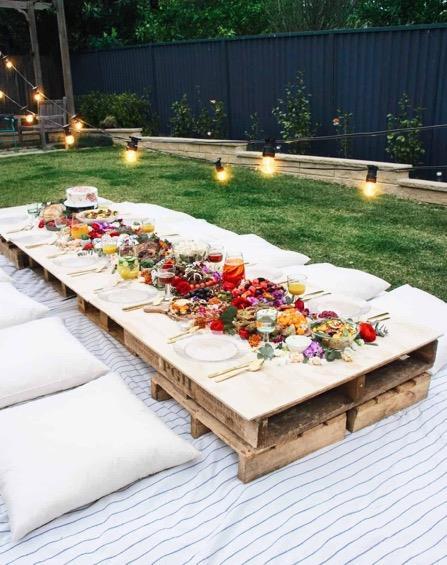
If your garden’s big enough and you don’t mind the intrusion then why not hire it out for parties? Save yourself hassle from the start and stick to hiring your garden out exclusively for children’s parties. There’s no alcohol, no late-night noise pollution and less mess. You could even provide catering and children’s entertainers (or do it yourself if you’re feeling brave).
The whole party can come as a packaged deal in your own garden for a nice profit. You’ll need to provide a marquee or gazebo in case it rains. Tables and chairs, games, and a music and PA system are initial financial outlays. You should expect to be asking about £800–850 to cover your expenses, time and effort. This will make it worthwhile.

If this idea is for you, make sure you get adequate insurance and liability cover. Childproof the garden and be mindful of health and safety considerations – make sure your first aid kit is well stocked.
Hire out your garden as a campsite
This is again likely to be better for bigger gardens, but letting campers into your garden is a fun way to make a bit of extra cash. If you’re near places of interest or areas of outstanding natural beauty you could be onto a winner.
The Garden Caravan Site in Norfolk has done just this and they charge £15–20 per pair per night. If you’re doing this occasionally for acquaintances it shouldn’t be a problem, but if you’re looking at developing it into a more permanent project or have general questions, we suggest you get in touch with your local authority. Planning Portal has good guidance on whether you need special permission.
Hire out your garden to painting groups

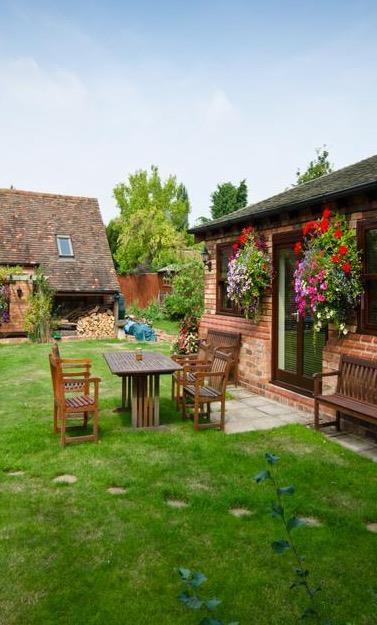
If you have a truly lovely garden, with lots of space for sitting, you could offer it to local art schools or holiday painting groups to paint in. Offer an all-in package including refreshments, lunch and even a cool lounge to relax in and you could charge in the £100s. Of course, this is only useful for people with a special garden with lots of nooks and crannies, great views and fascinating plants, as well as an attractive home to visit.
However, if you have these and the leisure to look after people, then contact local colleges, adult education establishments and even the local tourist office to let them know you exist. Send photos and a list of charges for different packages (a price for using the garden only, a price for garden and refreshments etc). If you’re more entrepreneurial you could set up classes yourself. Bring in an art teacher and advertise one-day or hour-long classes for locals and visitors.
Host an open garden event
If you have a sizeable garden that you take good care of, then a way to make money is to show it off to the public by staging an open garden event. This is where you open your garden to the public, like artists do when they hold open studio days, and you can charge an entrance fee or offer drinks or cream teas to visitors to make some money.
Most open gardens are staged to raise money for charities or worthy causes, such as repairing the church roof. If this is why you’d like to open your garden then you can advertise online at The National Garden Society or Open Gardens so your chances of a good turnout are increased. You can also serve refreshments to raise more money, and if you wanted to you could take a cut of the money raised as payment for your hard work. A lot of open garden events are only staged annually, so you have a whole year to prepare your garden for the event and that way you don’t have to obtain a license from the council.
Open your garden to the public
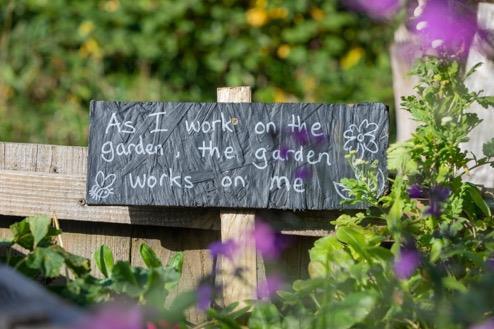
If you have a particularly nice garden, why not open it to the public? Some 4,000 gardens in England and Wales take part in the National Gardens Scheme. The money raised is donated to charity. Although you can’t really make money, it’s a great way to showcase the fruits of your labour. Plus, you’ll meet new people who share your passion. The size of your garden isn’t critical, and many NGS plots are typical back gardens. You don’t have to have a huge grand garden to join. Most people are interested in a good range of plants and flowers. It is not necessarily about the size. It’s a great way to meet new people, have a cup of tea and chat about gardening. But remember, you can’t charge people for tea unless you go through hygiene and health and safety hoops. The NGS say that most people exhibit their gardens once or twice a year. This means you don’t have to worry about finding strangers in your garden all the time!
Get free gardening equipment
Gardening doesn’t come cheap. This is certainly the case if you’re just starting out. One of the best ways to try and cut your costs is by trying to get free gardening equipment. Community freebie sites such as Freegle, SnaffleUp, Gumtree or Freecycle are useful.

For whatever reason, people will always need to shift some of their stuff. People are giving unwanted goods away for free! You never know what you might find that could be useful in the garden and home. So, before you head down to buy your gardening musthaves, take a quick look. It’s also worth having a root around your local recycling centre – one person’s junk is another’s treasure. You might be surprised to discover what people throw away in order to make some space. Good-quality and rarely-used gardening tools often end up on the ‘junk’ pile.
Get free gardening seeds
Ask family and friends for cuttings or any spare seeds they might have to help your garden grow. You could arrange a swap so that you have a range of different plants and seeds. Many people buy seeds but end up storing them away never to be used. So, you may be surprised that plenty of people would be willing to donate them to a good home.
Lots of gardeners will also be happy to furnish you with free cuttings from plants they already grow. You might want to check out gardening swap sites like Garden Swap Shop. Most are free to use, and allow you to swap seeds and plants with other community members.

Shed
You may not have set foot in it for years, it may be full of tools and garden equipment. But did you know that wooden shack at the bottom of your garden could make you some extra money?
There are many possibilities for transforming your dilapidated shed into a lucrative source of income.
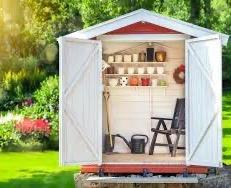
Homeowners are seeking ways to combat the currently all-too-notorious rises in energy bills and the cost of living crisis that’s all over the news right now. One such possibility is for homeowners who have an unused annex or outbuilding that could provide ‘passive income’ by renting it out as as an Airbnb.
One such possibility is for homeowners who have an unused annex or outbuilding that could provide ‘passive income’. Such an opportunity comes as new research from IW Capital found out that 39% of Brits view passive income sources as a way of complementing their income.
If you are lucky enough to have an outbuilding, keep reading to find out more.
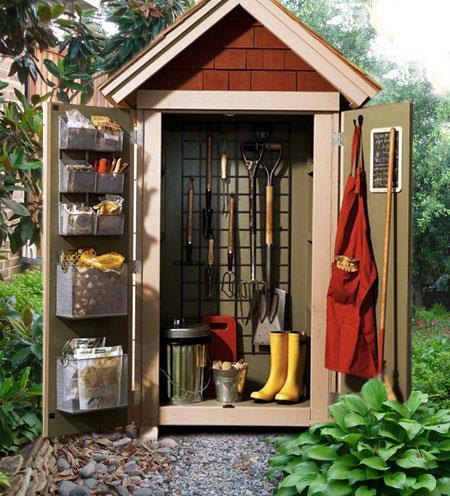
How much can be earned?
David Hannah, Group Chairman of Cornerstone Tax, posits that if these annex owners take necessary steps to create an Airbnb opportunity, this could open up an extra income averaging up to £6,000 a year: that’s two months paid salary for a median UK household. UK hosts on Airbnb collectively earned more than £1.5 billion in 2021, giving homeowners the decision to cap their own nightly price for the property.
Hannah goes on to state that while the demand for UK Airbnb properties is very high, and likely to continue this year due to key events like the Commonwealth Games and Jubilee, it is essential that homeowners do some serious research and preparation before opening up their properties to the public.
“We’ve all seen the rise in the cost of living and energy costs and, during the course of the pandemic, the increase in the trend of staycations. The likely restriction in consumer spending power may well encourage people to carry on holidaying in the UK. You may be facing increasing bills on your property and thinking that your unused annex or outbuilding could be used as an Airbnb for people who want to staycation in the English countryside.”
How to do it
STEP ONE
Getting an annex or outbuilding ready to make sure it’s suitable for people to stay.
That means you’re going to have to go through that building and make sure it contains all the basic necessities for living – it’s got to have somewhere to cook, somewhere to bathe, somewhere to go to the toilet and of course, somewhere to sleep. It’s got to be suitable for use as a dwelling.
More importantly, if you’re dealing with an annex, you’re probably already up to domestic insulation standards, but if you’re converting an outbuilding you’re going to need to think about insulating it.
Making it green, maybe installing a log burner or some other form of heating. But ultimately, what you are going to need, above all else, is planning permission.
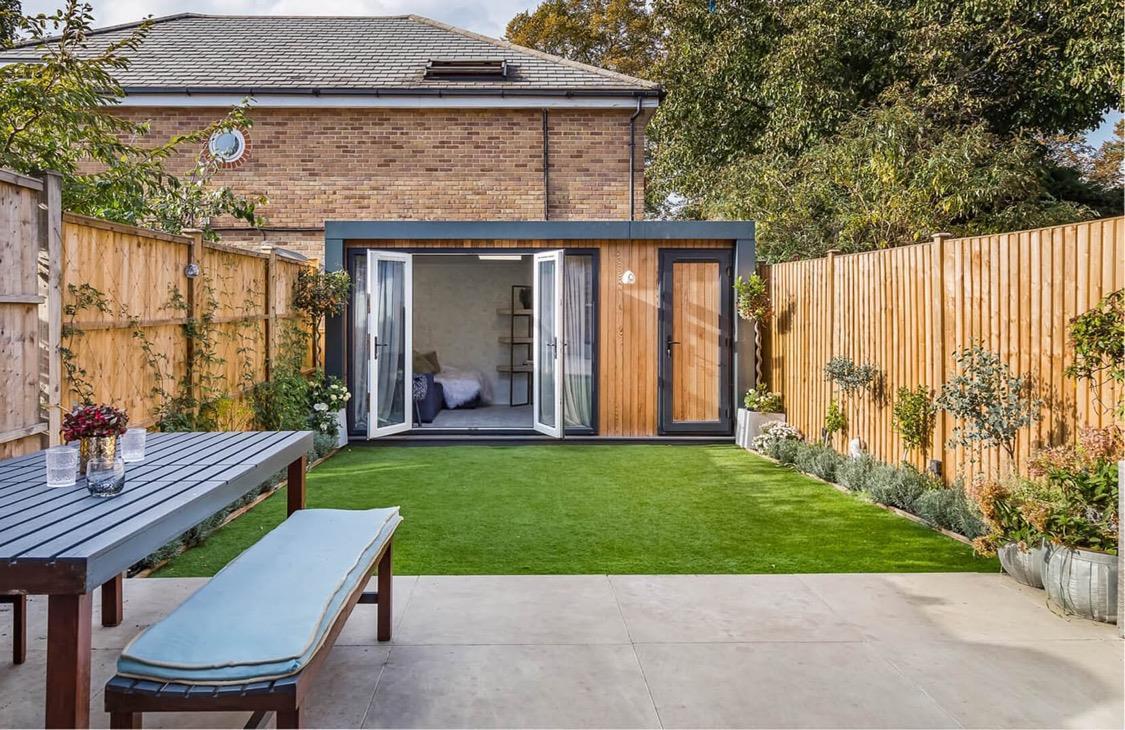
This could take several months depending on where you are and the state of your property.
Let’s assume that you can get all that in place – what do you do next?
STEP TWO
You need to make sure that your annex or converted out building has a separate meter, not necessarily a separate account, so that you can recover part of the costs of electricity and heating against the income that you earn from Airbnb. The important thing is to count everything that you use wholly and exclusively in that business and put it into your accounting software and claim it against your income tax – maximising the return.
Airbnb, running holiday cottages, that’s a business of holiday letting and you’re going to need to register yourselves with HMRC as having this new trade so that you can do self-assessment returns at the end of the tax year.
STEP THREE
“When you’ve got all that sorted, you’re ready to run and you’ve got to market it. This means you have to upload it to Airbnb, you might even want to build your own website to increase the promotion. You’re ready now, it’s open and you’ve got guests booked in. It’s a chance to make a separate source of revenue which is extremely useful in these times.”
Parking Space
Do you live in a particularly prime transport location? Do you have a garage or driveway sitting unoccupied and begging to be used? Why not turn it into a money-spinner by renting it out?

Don’t ignore the possibilities of other people parking on your land, especially if you live close to a station or in a busy, urban area with little parking but lots of businesses. If you have a garage but no car, you could potentially rent it out for others to park in. For many people who live in popular, big-city destinations, demand for parking can be huge meaning you’ll never be short of people looking to use your driveway or garage.
Driveways
Renting out your driveway is even simpler. Register with YourParkingSpace and let thousands of people know about your available space.
YourParkingSpace offers you the chance to advertise your space absolutely free and you won’t have to pay a service fee, as a 20% charge is added to your price automatically. They also provide users with places to park by the hour, rather than for the extended periods Park Let offer.
Parking in towns and cities is a hit-or-miss affair, with traffic congestion and extortionate prices causing stress and affecting the plans of drivers just looking for somewhere to leave their car for a few hours, a few days or more.
YourParkingSpace offers a refreshing new way of finding and booking your parking space, by searching your destination to find available parking, then easily comparing nearby spaces based on price and distance.
You can search from anywhere (via the app or on the website), book in advance and take the stress out of parking before you’ve even set off. Spaces can be privately owned or commercial and will either be allocated or simply a case of parking in a free bay. Whatever you choose, your parking space is guaranteed! Download the YourParkingSpace app here
How does YourParkingSpace compare to other ways of parking?

Pay on the day and long-term parking is expensive, especially if it’s in a place you haven't visited before, it’s during peak hours or you need to park for longer. Often the popular and convenient carparks are full or the only space is the one in the corner nobody wants to use.
Many of us add extra time onto our journeys to look for somewhere to leave our car; or we end up paying premium prices because we’re rushing or panicking that we’re going to miss our event or appointment.
Rather than worrying that you won’t be able to find anywhere safe, suitable and affordable, or trying to guess what you’ll need to pay for parking, YourParkingSpace allows you to plan ahead and stick to your budget by pre-booking your space. Rather than setting off early and wasting time, you can set off with peace of mind.
Why choose YourParkingSpace?
YourParkingSpace’s purpose is to make getting from A to B simpler. Their mission is to change the way we park by digitising parking spaces and connecting you the driver with those spaces. The result is parking that is more convenient, more affordable and also more sustainable.
In the unlikely event that you find a lower price for the same parking space elsewhere within 24 hours of your booking start date, YourParkingSpace will match the lower rate and also give you 20% off the competitor’s rate.

YourParkingSpace offers great flexibility too. Using their app, you can book and manage your parking from anywhere at any time, extend a parking session, change the vehicle registration and check the details of your booking in advance.
According to autoexpress.co.uk, motorists in the UK can spend up to four days a year looking for parking.
That’s 96 hours or 5,760 minutes of our lives just driving around searching for a space. YourParkingSpace literally saves you time, as well as money.
How much can you make?
Depending on where you live, you can earn from £40 to £350 a month. Aside from the costs of advertising (if you’ve taken out an ad, or used one of the parking websites that charges commission), and perhaps new locks and some extra keys, there should be few other costs or burden on your time.
How much you can earn will depend on both the location and the length of time you’re renting out spaces for.
Clean Air Zones
If you live near a ‘Clean Air Zone’, you could potentially make £1,000 a year.
Those living near a proposed Clean Air Zone, where certain vehicles will pay a penalty charge to enter, could earn more than £1,000 per year by renting out their driveways as parking spaces for drivers looking to avoid the daily driving charge.
Birmingham will have one of the first Clear Air Zones in 2020, but other cities under discussion include Edinburgh, Cambridge and Aberdeen, with 60 local authorities having either considered, or considering, clean air measures.
According to YourParkingSpace, many of the areas being considered are already rented driveway parking hotspots, so the new zones will only add to the value of your driveway.
On top of that, renting out your driveway helps the environment by reducing the need for cars to drive around looking for empty parking spaces.

Check your Insurance
You will need to check with your home insurance provider to ensure that renting out your driveway or garage doesn’t affect your policy, and any extra cash you make must be declared to the Inland Revenue on your tax return.

IN CONCLUSION then, we hope this has been a useful and thorough guide to making money from your home. There are obviously some quite surprising ways you can make money, and if you manage to do even some of these, you could find yourself with a nice little earner.
As we’ve suggested throughout the book, it’s always a good idea to do the research into all these options, in order to educate yourself with the information you’ll need to succeed.
As always, we recommend you join us at to get regular news, stories and advice as contained in this book, to help you find money in corners of your life you didn’t even know were there!


Thank you.


